Consortium
Jaume I University (UJI) aims at implementing an ethical governance system to promote good practices in responsible research and innovation (RRI) within higher education institutions, Research performing organisations and research funding bodies while involving the citizens in research.
Universitat Jaume I, seeks to develop interventions along the lines of National Open Science Strategy (ENCA). This strategy sets a series of measures and goals such as the promotion and strengthening of transparency, quality and reproducibility of research results
OUR GOALS
UJI aims to ease researchers’ access to information by adopting a multidimensional approach to open science, including public repositories and open access peer-reviewed journals. Additionally, UJI is working on developing criteria that combine qualitative and quantitative methods for research assessment.
Finally the Universitat Jaume I is working to improve its research ethics committee procedures and protocols.
CATALISI SUCCESS STORY
Universitat Jaume I (UJI) showcased its successful transformation in research ethics and Open Science during a recent CATALISI project webinar featuring Ramón A. Feenstra and Laura Bernal Sánchez.
INTERVENTION AREAS
On CATALISI project, UJI is focusing on 2 big domains and is developing targeted actions in 3 intervention areas – namely:
Research careers and talent support
- Recognition of qualifications and research careers
- Reform of research assessment
Research modus operandi
- Mainstreaming of open science and digitisation of research.
UJI story OF TRANSFORMATION
Challenges
Research careers and talent support
- The development of new research assessment criteria, with a focus on qualitative measures, and the creation of clear, straightforward criteria for identifying, managing, and evaluating gender mainstreaming in research.
- The risk of increasing bureaucratic tasks for researchers
Research modus operandi
- Researchers’ lack of knowledge about citizen science and public engagement, as well as lack of willingness to participate in these kind of projects
- Lack of institutional and economic support to these activities and the distance between university and civil society.
methodology
Research careers and talent support
- Close collaboration between the university’s top management, the academic community, and the members of the CATALISI project.
- Small, specialized working groups focused on the intervention areas.
Research modus operandi
- Deliberation processes with key stakeholder groups (focus group) and consultation with the academic community (survey) on topics where institutional transformation is being implemented.
- Development of specific action plans approved by the university’s governing bodies focused on open science and research evaluation reform.
ACCOMPLISHMENTS
The Universitat Jaume I (UJI) has made significant institutional changes in their research, innovation, and open-access areas, underscoring its commitment to advancing scientific knowledge and ethical standards.
UJI has been driving systemic changes that align with national and European frameworks, such as the National Open Science Strategy (ENCA) and CoARA initiatives.
Highlights of these accomplishments include the launch of its Open Science Strategy, implementation of innovative cross-disciplinary training programs for doctoral students, and multiple conferences on research ethics and scientific evaluation practices.

The Universitat Jaume I (UJI) has become one of the first Spanish institutions to publish a plan for reforming its scientific evaluation system, as part of its commitment to the CoARA coalition. This plan will balance qualitative and quantitative assessment methods as part of the CATALISI project.
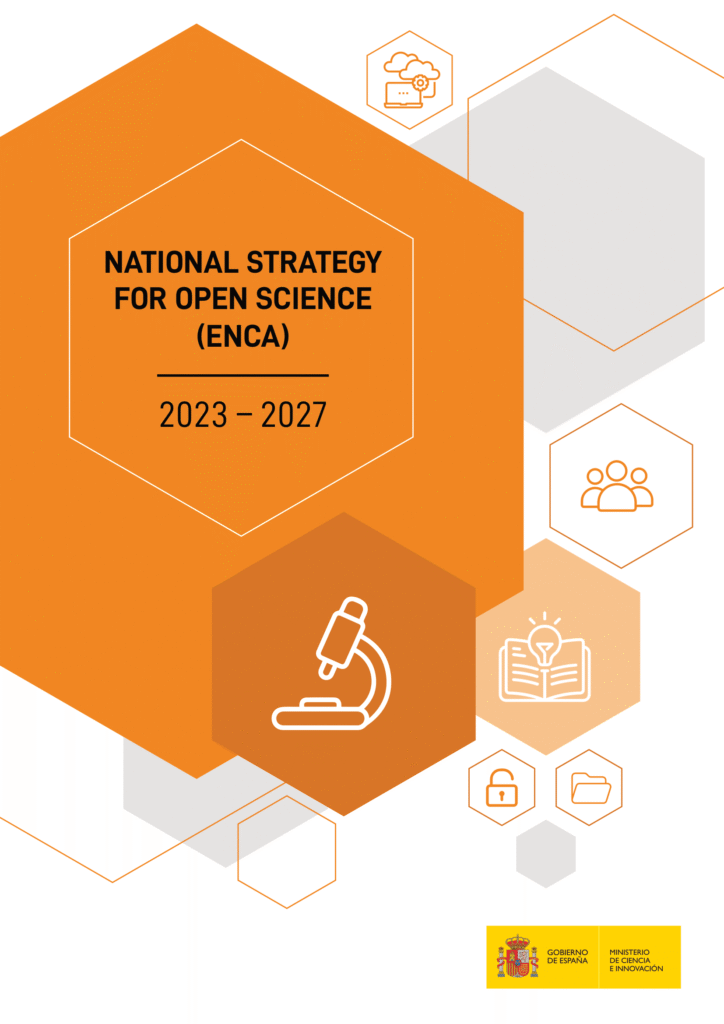
In June 2024, the Governing Council of the Universitat Jaume I (UJI) unanimously approved an Action Plan for the National Open Science Strategy (ENCA). This strategy, promoted by the Spanish Ministry of Science, Innovation, and Universities, aims to drive open science through four key areas: Axis A: Digital infrastructure for open science. Axis B: Management of research data according to FAIR principles. Axis C: Open access to scientific publications. Axis D: Incentives, recognition, and training.
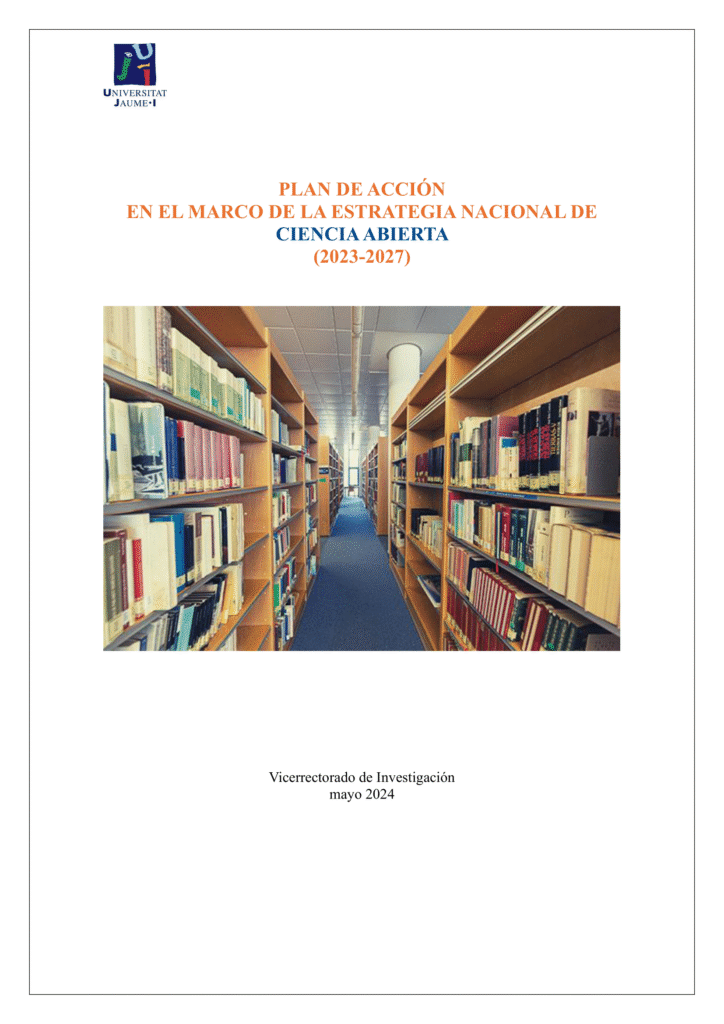
The Universitat Jaume I (UJI) will implement its new open science action plan, which is aligned with the ENCA strategy, by focusing on measures it has the capacity to action. This will be done by creating synergies with the CATALISI project. CATALISI, provides a framework to support the UJI in its implementation of open science initiatives. This collaboration will help the university to promote and embed open science practices.
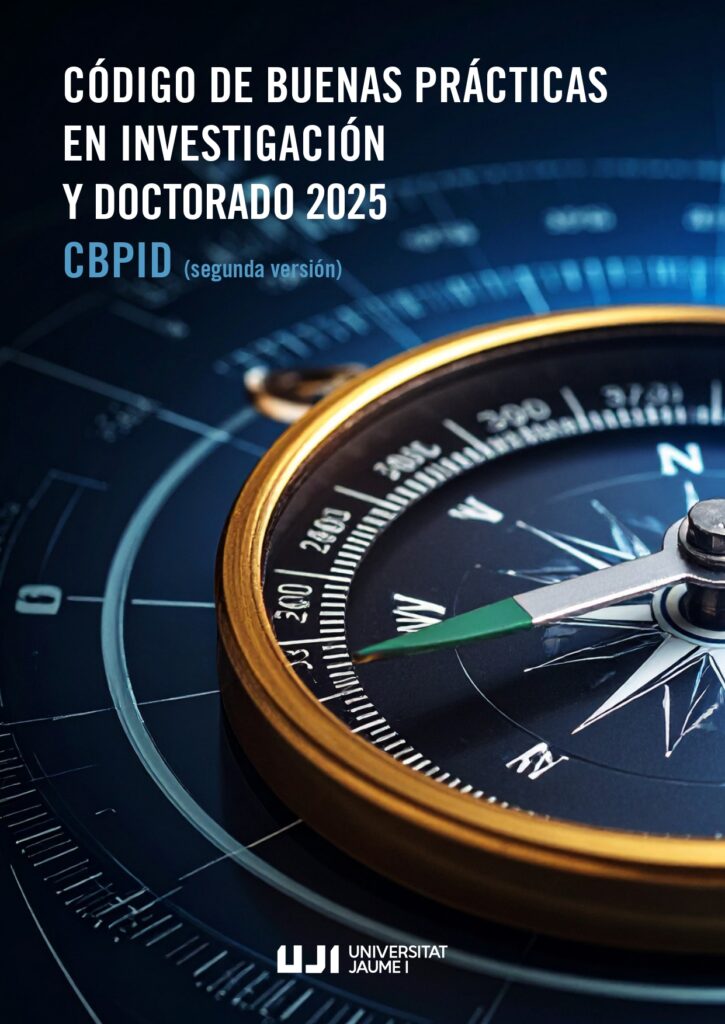
The Code of Good Practices in Research and Doctorate (CBPID) 2025 at the Universitat Jaume I (UJI) establishes the ethical principles for all scientific activities. This guide is structured around four central pillars: Integrity Gender equality Open access Communication and public engagement Its main goal is to promote honest and transparent research by setting out commitments for both the university as an institution and its research community.
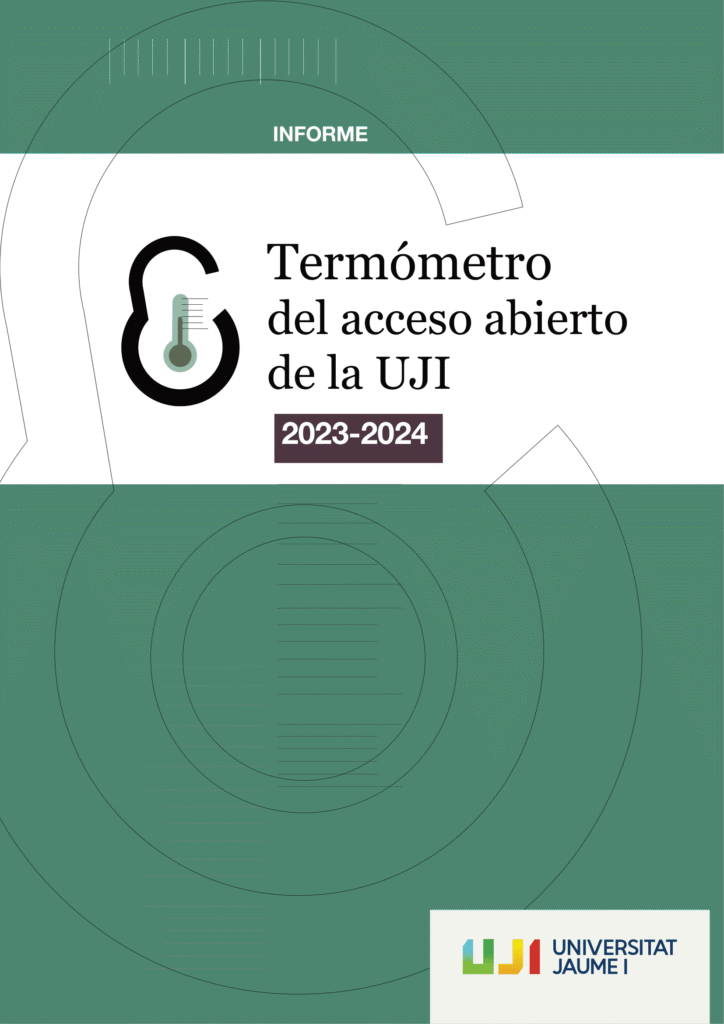
This report seeks to clearly reflect the level of adherence to open access policies.The Universitat Jaume I (UJI) is allocating resources to its open access mandate, focusing on the results of its research. Specifically, the university is highlighting its commitment to two distinct open access routes: The “Gold” route, which involves allocating resources for Article Processing Charges (APCs) to publish articles in open access journals. The “Diamond” route, which supports and promotes the university’s own non-commercial journals that provide free open access to all content.
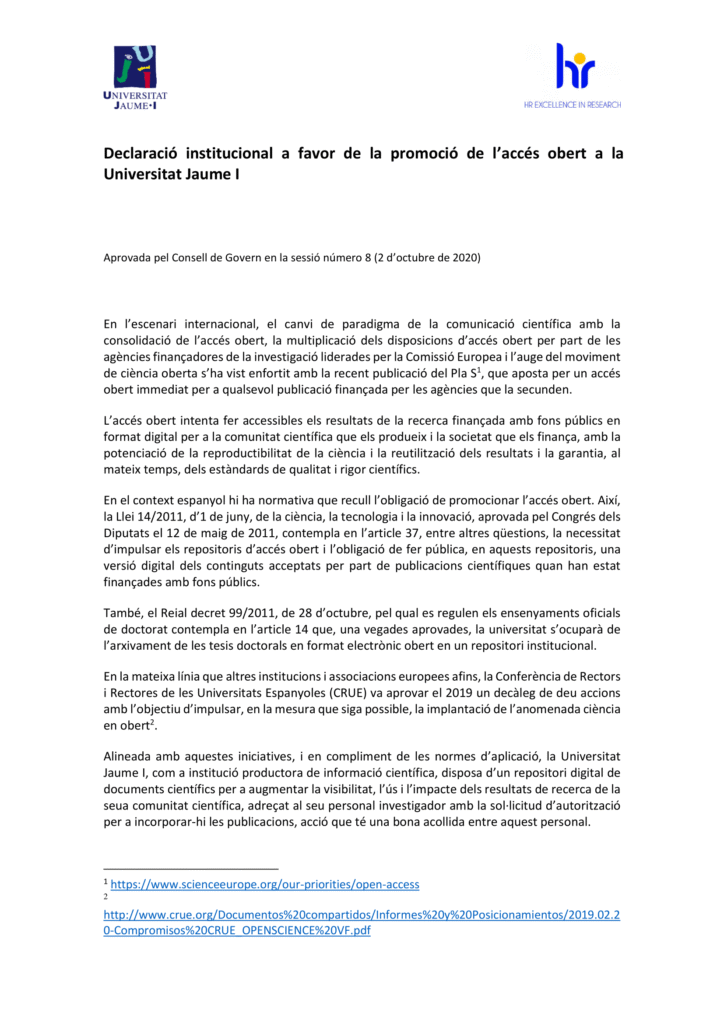
In October 2020, the Governing Council of the Universitat Jaume I (UJI) approved an institutional declaration to promote open access. Aligned with these changes, the UJI has established its own digital repository for scientific documents. The repository aims to increase the visibility, use, and impact of the research produced by its community. The university’s research staff are asked for authorisation to include their publications in this repository, a move which has been positively received.
Other relevant links:
Relevant events:
Articles:
Team
UJI’s involvement in the European ETHNA System project demonstrates their commitment to ethical governance in research, having already established structures like the Ethics and Integrity Committee and appointed an Ethical Officer. This solid foundation ensures a strong ethical framework.

Ethics and Integrity Committee (CEI), Human Research Ethics Committee (CEISH) and Animal Experimentation Ethics Committee (CEEA)

Patrici Calvo
Associate professor at Jaume I University Department of Philosophy and Sociology


